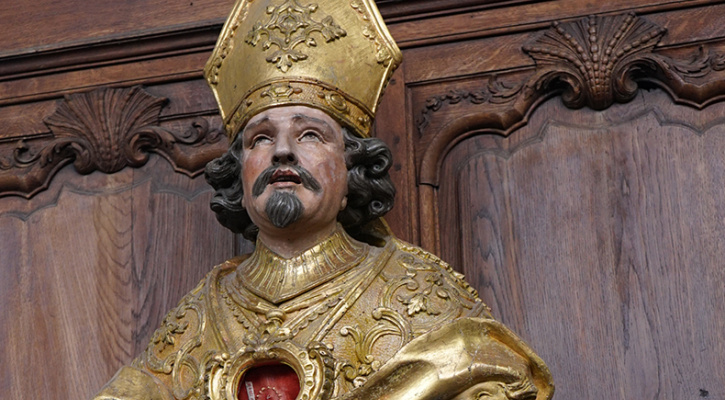Saint of the day for January 13: story of Saint Hilary of Poitiers

(about 315 - about 368)
This staunch defender of the divinity of Christ was a kind and courteous man, dedicated to writing some of the greatest theologies on the Trinity, and was like his Master in being labeled a "troublemaker of peace". In a very troubled period in the Church, his holiness was lived both in culture and in controversy. He was bishop of Poitiers in France.
Raised as a pagan, he converted to Christianity when he met his God of nature in the Scriptures. His wife was still alive when he was chosen, against his will, to be the bishop of Poitiers in France. He soon began to fight what became the scourge of the fourth century, Arianism, which denied the divinity of Christ.
The heresy spread rapidly. Saint Jerome said: "The world groaned and was amazed to discover that it was Arian." When Emperor Constantius ordered all the bishops of the West to sign a condemnation of Athanasius, the great defender of the Eastern faith, Hilary refused and was banished from France to distant Phrygia. Eventually he was called "Athanasius of the West".
While writing in exile, he was invited by some semi-Aryans (hoping for reconciliation) to a council called by the emperor to oppose the Council of Nicaea. But Hilary predictably defended the Church, and when he sought a public debate with the heretical bishop who had exiled him, the Aryans, fearing the meeting and its outcome, pleaded with the emperor to send this troublemaker back home. Hilary was welcomed by her people.
Reflection
Christ said his coming would bring not peace but a sword (see Matthew 10:34). The Gospels offer us no support if we fantasize about a sunlit holiness that knows no problems. Christ did not run away at the last moment, even though he lived happily ever after, after a life of controversy, problems, pain and frustration. Hilary, like all saints, simply had more or less the same.